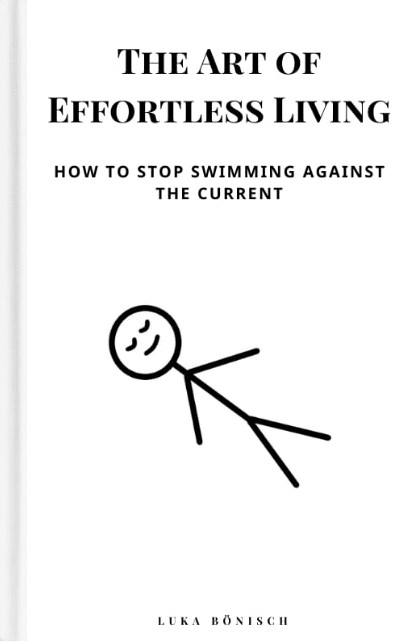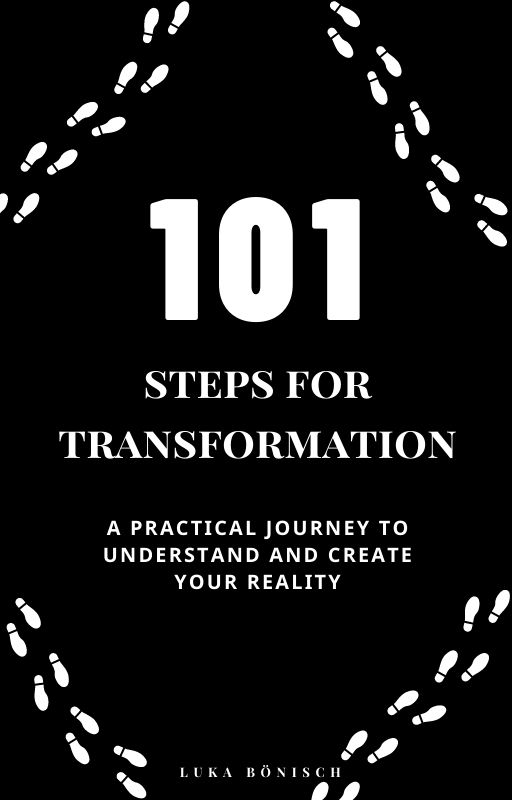Dreams have intrigued humans for millennia, from ancient Babylonians and Egyptians over Tibetan Yogis up to contemporary psychologists. It was not until Freud published The Interpretation of Dreams in 1900 and the later work of Carl Jung that dream interpretation became a widely acknowledged field in therapy.
Even if you are not interested in therapy, paying attention to your dreams can be a very beneficial thing to do.
Unfortunately, dreams have become less important, especially in the western world. We rarely talk about our dreams with others. Nor do we try to interpret our dreams or help other people interpret theirs.
And many people even dismiss their dreams as nonsense.
In many indigenous tribes dreams were and are an important aspect of their life. And some cultures start their mornings with everyone coming together to discuss their last night’s dreams.
Since I started to pay attention to my dreams, writing them down, and interpreting them myself my life has become a lot richer.
Here are a few reasons why you should pay attention to your dreams and how this can be a transformative experience.
You’ll Better Remember Your Dreams
Perhaps you are one of the people who say that they can’t remember their dreams. Or you might be even saying that you don’t dream, which is not true by the way.
Everyone dreams, every night, no exception. It’s a matter of remembering your dreams.
But by saying this to yourself you could be feeding into a self-fulfilling prophecy.
Because you are saying you can’t remember your dreams you are not paying attention to them. And because you are not paying attention to your dreams you can’t remember them. It’s a vicious cycle.
The interesting thing is as soon as you set your intention to pay attention to your dreams you’ll start to remember your dreams better.
And when you start to remember your dreams you are going to want to pay more attention to them. A much better cycle.
This can be explained simply by the fact that your intention directs your attention.
For instance, if you are not looking for red cars on the street you will hardly notice them. But when you’re actively looking for them, red cars suddenly appear everywhere.
The same is true for dreams.
If you don’t care about your dream content you’ll have no conscious intention of remembering them.
But just having decided that you want to pay attention to your dreams will bring them to the forefront of your awareness.
You Dream a Lot

Another reason why you should pay attention to your dreams is that you dream a lot in your lifetime.
We spend about 1/3 of our life sleeping and of the 8 hours of sleep each night we spent about 2 hours dreaming.
And in those 2 hours of dreaming, you’ll have 4 to 7 dreams. This means that in your lifetime you’ll have over 100.000 dreams.
If something fills up so much of our lives, there must be something to it. And it’s not just a handful of people who dream, it’s everyone.
So, if every human has dreams every night surely we are meant to pay attention to dreams. Or at least they are not supposed to be dismissed as nonsense our brain makes up.
Not paying attention to your dreams is like traveling the world but looking on your phone the whole time. You’re there, at another place, but not paying attention to the place.
You’ll Get to Understand Your Dreams
This is something I have realized for myself. The more I started to pay attention to my dreams to better I became at interpreting them.
In the beginning, they seemed totally senseless. But with time I started to recognize patterns and saw reoccurring themes.
And in my experience dreams often convey something that is important for your current life situation.
Sure there are plenty of dream dictionaries out there and while they can be helpful in the beginning to understand general symbolism, the meaning of your dream content is always unique to your life.
Hence, if you dream of something that seems important ask yourself what it could stand for in your life.
Also, you will start to see what type of dreams are most prevalent for you.
Some of us, for instance, have very realistic dreams most of the time. Others, dream of very surrealistic scenes. Some of us dream from a first-person perspective. Others, from a birds-eye view.
In my dreams, for example, I frequently experience myself as the space in which the dream is happening. Like a movie where you can decide your viewpoint.
By paying attention to your dreams you will better understand what kind of dreamer you are. Hence, you’ll get more accustomed to your dream world.
And if you want to get the most of it I recommend having a dream journal. This will also be helpful for the following points.
Dreams Tell You About Your Development

It was not just the famous psychiatrist Carl Jung who recognized that dreams seem to convey a message to the dreamer. Many cultures have recognized the value of dreams for self-development and spiritual growth.
Dreams can tell you which areas you should work on, or how your personal development is coming along.
They may also inform you about your repressed emotions or shadow aspects you have difficulty accepting.
Dreams are like a conversation between your subconscious and your conscious mind. They are a liminal space (=a space in between.)
We humans tend to suppress and repress the things we don’t like. But this just pushes them into the unconscious.
And as a result, these suppressed and repressed emotions and tendencies manifest themselves in all kinds of ways in our lives.
Be it physical and mental ailments, relationship issues, or any other personal problems, such as low self-esteem.
Dreams are a good way to uncover repressed content.
And the moment you have uncovered it, it will stop controlling your life. Or at least you are now aware of it and can work to integrate and transcend it.
In that sense, dreams serve as a self-organizing principle of the psyche.
Your conscious and unconscious come together to make sense of your experiences and integrate them into the broader context of your life.
You could say that dreams want you to become whole.
Dreams can also give you signs of what to focus on next in your life.
For instance, if you have never expressed your creative artistic side a dream might urge you to do so. And this urge can come in many forms. You could be dreaming of an art museum where you find paintings with your name on them for example.
This would be a very obvious way of the dream to convey this message. But these messages can sometimes be more difficult to decipher and understand.
However, paying attention to your dreams will improve your ability to decipher the messages.
Hence, your dreams can be an important source of guidance and insight in your life.
Get Concrete Information
As much as dreams are a riddle most of the time, they can also be as straightforward as your best friend.
In many cultures dreams are regarded as a way to get a glimpse of the future. Sometimes this can come in metaphors and sometimes this may even be very literal.
Even in the western world, there are reports of people who have had precognitive (foreknowledge) experiences.
One example of this is found in Carl Jung’s autobiography, where he writes:
“…I awoke, roused my wife, and checked the time. It was three o’clock in the morning. The dream was so curious that I thought at once that it might signify a death. At seven o’clock came the news that a cousin of my wife had died at three o’clock in the morning.” – Carl Jung, Memories, Dreams, Reflections
Also, I remember reading about a case of a woman who had a dream about a plane crashing the night before she had a flight scheduled. As she woke up, she canceled her flight. And surprisingly the plane crashed.
But dreams can also for instance give you answers to long-standing questions. Like if you should move, what country to travel to next, how to proceed in your relationship, etc.
Increased Chance of Lucid Dreams

Paying attention to your dreams also increases your chance of having conscious dreams (=lucid dreams.)
This is when you are aware that you are dreaming in a dream. Lucid dreams open up a whole new avenue of exploration and adventure in dreams.
Lucid dreams are highly dependent on your ability to recall dreams and to recognize when you are dreaming. Here a dream journal can be very beneficial.
By recording your dreams you’ll get to know your dream signs. These are reoccurring things, people, events, and so on that can remind you that you are dreaming.
The value of lucid dreaming is vastly underrated and it might just be one of the most beneficial and transformative skills a human can learn.
Some of the potentials of lucid dreaming are:
• Scripting of adventures and explorations
• Rehearsal for living
• Creative problem solving
• Overcoming nightmares and fears
• Opportunities for healing and integration
• Experiencing higher states of consciousness
• Fulfillment of hedonistic desires
If you want to know more about how to achieve lucid dreams I recommend reading this elaborate guide on lucid dreaming techniques.
Dreams Are Interesting
The last reason I want to state why you should pay attention to your dreams is that they are interesting. Let’s face it dreams a strange.
It’s like going on a trip every night. Even if you have experience with psychedelics, dreams are in no way inferior in strangeness and significance.
Personally, I can say that some of the dreams I had were among the most insightful experiences of my life. Sometimes one dream can teach you more about yourself than a whole year of conscious reflection.
Sure some dreams are less interesting. But I bet you had at least a few experiences where you woke up and couldn’t stop thinking about your dream for the whole day.
In dreams, you’ll often find yourself in alien scenes, with interesting characters, or on exciting adventures.
And is this not enough reason to pay attention to your dreams?
△△△
“You may say I’m a dreamer, but I’m not the only one. I hope someday you’ll join us. And the world will live as one.” – John Lennon
Luka
Latest posts by Luka (see all)
- No Seeking No Path - April 29, 2025
- Stepping Out of Time - April 22, 2025
- Back to the Basic Point(ers) - April 8, 2025


